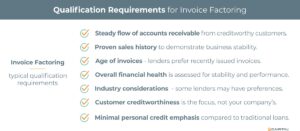
Funding the Future: Independent Working Capital Solutions for UK Businesses
Content
Ours is a nation of resilience, independence, and adaptability. This is particularly evident as the Chancellor, Rachel Reeves, citing the latest projections from the Office for Budget Responsibility (OBR), forecasts economic growth of 2% in 2025. This represents an improved forecast from the OBR’s previous outlook published in March when the former Conservative government delivered its last budget. Although this represents stronger growth than the US forecast of 1.7% growth for 2025, UK SMEs are cautious. The impact of substantial tax hikes announced in October’s recent budget could significantly downgrade growth forecasts.
This caution is heightened by further economic uncertainty as inflation stubbornly inches towards target, the battle against high prices continues, and political shifts across the globe impact trade. To successfully navigate these challenges, UK businesses must fortify their financial structures to ensure resilience and flexibility. Access to working capital is crucial for maintaining operations, driving growth, and remaining competitive in this evolving economic landscape.
As businesses face restrictions in securing traditional funding, leading independent funders are filling the credit gap with more readily available funding options. Continue reading to explore how to obtain, manage, and leverage independent working capital solutions to enhance operational efficiency and support future growth in an uncertain economy.
The Importance of Working Capital
While some businesses may temporarily operate with limited working capital, sustainable growth and stability typically require a healthy working capital position. It enables companies to cover operational costs, invest in growth opportunities, and manage unexpected expenses. Sufficient working capital ensures businesses can respond swiftly to challenges and seize emerging opportunities to outpace the competition.
Effective Working Capital Management
Businesses should focus on effective management and strategic use of funds to make the most of working capital:
- Regularly Monitor Cash Flow: Implement robust cash flow management practices to track inflows and outflows, ensuring you have a clear understanding of your working position at all times.
- Optimize Inventory Levels: Maintaining the right inventory amount can free up cash and reduce holding costs, allowing you to invest in other business areas.
- Negotiate Better Payment Terms: Work with suppliers and customers to secure favourable payment terms that enhance cash flow, such as extending payment deadlines or incentivising early payments.
- Invest in Technology: Utilise financial management software to streamline operations, improve forecasting, and enhance decision-making processes.
- Secure Business Financing: Ensure having access to the working capital needed for expansion, operational stability, and the ability to seize new opportunities.
Challenges in Securing Traditional Working Capital Solutions
Securing traditional funding poses several challenges for businesses. New and evolving government regulations impose stringent lending criteria. Conventional lenders’ diminishing tolerance for risk limits funding to nearly all except stable corporate entities.
In this environment, SMEs typically face immovable obstacles when seeking traditional working capital solutions. These barriers often include the following challenges:
- Stringent Lending Criteria: traditional lenders often impose rigorous requirements that can be difficult for SMEs to meet, particularly those with limited financial histories.
- Economic Uncertainty: Fluctuating economic conditions make traditional lenders more cautious, resulting in tighter credit availability.
- Cash Flow Issues: Many businesses struggle with inconsistent cash flow, which can deter lenders and complicate access to credit.
- High Debt Levels: Companies with existing debt may find it challenging to secure additional funding, as traditional lenders often shy away from over-leveraged borrowers.
These obstacles deter most business owners from pursuing traditional financing. Instead, many SMEs explore independent working capital solutions that offer greater flexibility and faster access to funds.
Independent Working Capital Solutions
Independent working capital solutions began gaining popularity in the UK around the mid-2000s, particularly following the global financial crisis of 2008. The tightening credit market, the rise of fintech companies, changing business needs for more flexible funding, and increased awareness of alternative options elevated independent working capital solutions to mainstream financing strategies.
The emergence of fintech companies provided innovative financing solutions to accelerate the ease and speed of funding. Fintech is the key to unlocking economic growth. Continuing efforts to advance technologies, systems, and work practices enable these tech-enabled lenders to maximize efficient access to working capital. Of the many innovative financing solutions developed, few can match the speed and flexibility of invoice factoring!
Invoice Factoring
Invoice factoring offers SMEs a swift and reliable way to improve cash flow by converting outstanding invoices into immediate working capital. This solution enables companies to meet operational expenses, invest in growth opportunities, and reduce the stress of waiting for customer payments. With minimal paperwork and a robust online account management portal to monitor transactions, invoice factoring allows businesses to focus on their core operations while easily managing their working capital position.
Here’s how invoice factoring works to accelerate access to working capital:
- Submit Invoices: Send your outstanding invoices to the funder. The funder verifies the invoices, processes payment, and takes over collections.
- Advance Payment: the funder transfers an advance, up to 90% of the invoice value, within 24 hrs. The remaining balance is held as a reserve.
- Final Settlement: Your customers pay invoices directly to the funder. The funder releases the reserve and transfers the remaining amount to your account.
A small fee is charged for the transactions.
Here are the key advantages of invoice factoring:
- Accelerated Cash Flow: Provides immediate access to working capital, helping businesses manage expenses and operations smoothly.
- Quick Funding: Faster than traditional loans, with funds often available within 24 hours.
- Flexible Financing: Grows with your business; as you invoice more, your access to working capital expands.
- Reduced Collection Efforts: The factoring company handles invoice collections, saving you time and resources.
- Credit Protection: Many factors offer credit checks on customers and bad debt protection, helping mitigate risks.
- Less Strict Requirements: Generally easier to qualify for than traditional bank loans, with less emphasis on credit history.
- Focus on Growth: Frees up resources to focus on business growth rather than cash flow issues and working capital shortages.
Invoice factoring provides accelerated cash flow, quick funding, and no debt, with flexible financing that scales with your business. It reduces collection efforts, offers credit protection, and has easier qualification requirements, enabling you to focus on growth.
Qualification requirements
Qualification requirements for invoice factoring typically include having a steady flow of accounts receivable from creditworthy customers and a proven sales history. Lenders consider factors such as the volume and consistency of accounts receivable, the age of invoices, the overall financial health of the business, and the industry in which the company operates.
Unlike traditional loans, factors often place less emphasis on personal credit scores, focusing instead on the creditworthiness of the customers whose invoices are being factored.
When seeking the best lenders to provide invoice factoring, look for leading independent funders with extensive experience within the industry that your company operates. These lenders can rapidly assess qualification requirements, approve, onboard, and set up accounts to quickly start first funding.
Why Choose experience?
Leading independent funders are innovative, tech-enabled, and knowledgeable. Working with an independent funder experienced in your industry is beneficial because they understand the specific financial cycles, challenges, and customer behaviors unique to that sector, allowing for tailored solutions and more favorable terms. Their industry expertise can lead to quicker approvals, a smoother overall process, and fast solutions to emerging business complexities.
Conclusion
Economic uncertainty abounds! Forecasted UK growth of 2% in 2025 may be downgraded as the impact of significant tax hikes announced in the government’s recent budget become realised.
In this environment, securing independent working capital solutions like invoice factoring can be a game-changer for businesses striving for resilience and growth. By leveraging the advantages of accelerated cash flow and flexible financing, companies can navigate the challenges posed by traditional funding barriers and economic uncertainties.
Partnering with experienced lenders in your industry enhances access to much-needed working capital and provides tailored support that aligns with your specific needs. As businesses continue to adapt and thrive, embracing innovative financial solutions will be key to unlocking their full potential and achieving long-term success.
Work with a recognised leader in independent funding to gain the most leverage from business financing. Their experience, knowledge, and flexible funding solutions unleash boundless expertise and resources to maximize access to working capital.
Contact us today to learn more about flexible business financing solutions to navigate uncertainty and how we can maximise your company’s access to working capital.
Key Takeaways
- The forecasted UK economic growth of 2% in 2025 may be downgraded as the impact of significant tax hikes announced in the Labour government’s recent budget are realised.
- UK businesses must fortify their financial structures to ensure resilience and flexibility – access to working capital is crucial.
- SMEs typically face immovable obstacles when seeking traditional business financing. Meanwhile, leading independent funders provide innovative financing solutions, such as invoice factoring, to accelerate the ease and speed of funding.
- Work with a recognised leader in independent funding. Their experience, knowledge, and flexible funding solutions unleash boundless expertise and resources to maximise access to working capital.



